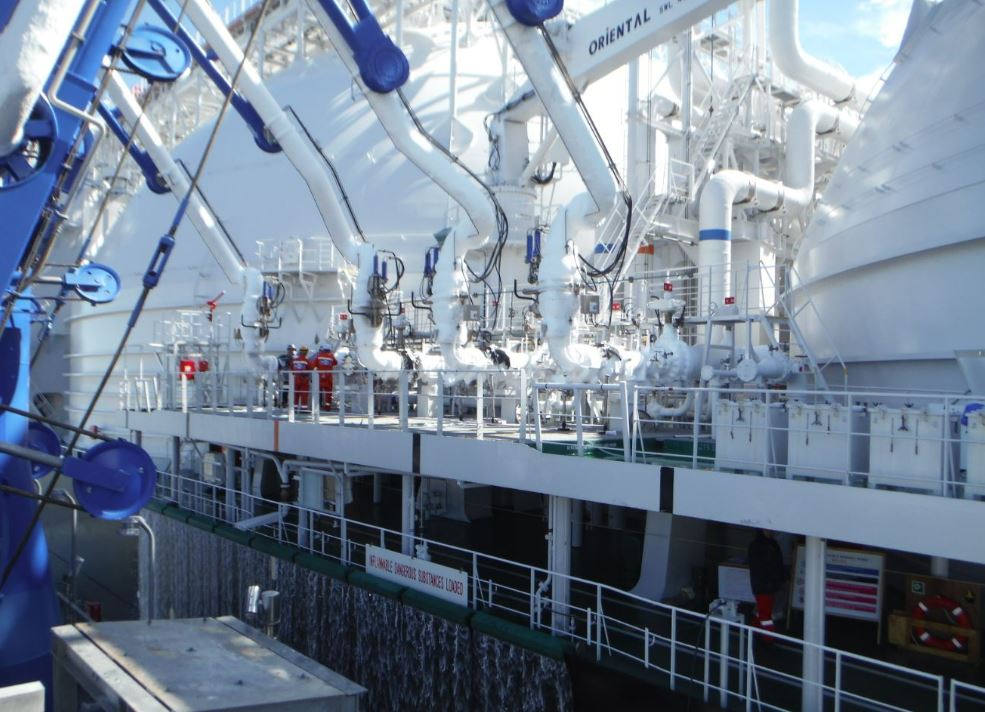The United States exported more LNG cargoes in the week ending May 25, while the Henry Hub spot price also increased when compared to the week before, according to the Energy Information Administration.
In total 24 LNG shipments were exported from US terminals between May 19 and May 25, a rise of five shipments when compared to the week before.
EIA said in its newest weekly natural gas report that natural gas deliveries to LNG export facilities also rose, averaging 12.9 Bcf/d, or 0.9 Bcf/d higher than last week.
Six out of seven large US LNG terminals exported the 24 cargoes during the week under review.
The total capacity of LNG vessels carrying these cargoes is 90 Bcf.
Cheniere’s Sabine Pass plant dispatched eight cargoes, while its Corpus Christi plant sent four shipments, EIA said, citing Bloomberg Finance shipping data.
The Freeport terminal sent five cargoes and the Cameron plant exported three shipments.
Cove Point and Calcasieu Pass each sent two cargoes during the week under review, while there were no shipments from Elba Island.
EIA attributed the rise in exports this week, in part, to the completion of seasonal maintenance at LNG terminals.
Henry Hub up to $9.30/MMBtu
This report week, the Henry Hub rose 85 cents from $8.45/MMBtu last Wednesday to $9.30/MMBtu this Wednesday.
Prices across the South were higher, even as temperatures in the region moderated toward normal, following several weeks of above-normal temperatures, the agency said.
Declines in natural gas consumption by the electric power sector along the Gulf Coast, which fell by 0.6 billion cubic feet per day (Bcf/d) this report week, were more than offset by growth in feed gas deliveries to LNG export terminals in the region, which grew by more than 0.9 Bcf/d to 11.7 Bcf/d, according to data from PointLogic.
Feed gas deliveries to LNG export terminals in Texas increased by 0.4 Bcf/d, and deliveries to terminals in Louisiana increased by 0.6 Bcf/d.
Spot LNG, TTF down
According to the agency, international natural gas prices declined this report week.
Bloomberg Finance reported that swap prices for LNG cargoes in East Asia fell $1.64/MMBtu to a weekly average of $21.88/MMBtu.
At the Dutch TTF, the day-ahead prices fell $2.20/MMBtu to a weekly average of $25.92/MMBtu.
In the same week last year (week ending May 26, 2021), the prices in East Asia and at TTF were $10.05/MMBtu and $9.04/MMBtu, respectively, the agency said.
Replenishment of working natural gas in European storage fields is contributing to the shrinking premium for European versus East Asian natural gas, it said.

